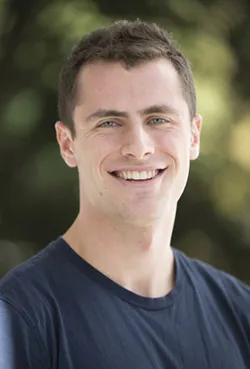Tyler Alexander ’17 Works to Improve Haitian Healthcare

Tyler Alexander '17 is committed to protecting human life in Haiti, a country where healthcare lacks sufficient resources and structure.
“Everybody deserves the right to adequate health care,” says Lang Scholar Tyler Alexander ’17, an astrophysics major from Short Hills, N.J. "We are all human, around the world, and deserve to be treated as such."
That is the core principle that prompted Alexander to launch Mass Casualty Preparedness, Haiti — a project funded with the help of his Lang Opportunity scholarship and dedicated to improving healthcare in Haiti through the establishment of a Mass Casualty Intervention (MCI) standard for Haitian healthcare providers.
A mass casualty incident entails any event in which emergency medical services become overwhelmed by the number and severity of casualties involved. Haiti has recently suffered two: the 2010 earthquake that resulted in roughly half a million casualties and, more recently in October, Hurricane Matthew, which claimed more than 1,000 lives and injured 30,000 more. Alexander designed his project in the hope that Haitian healthcare providers can better prepare for and coordinate responses to future incidents.
Mass Casualty Preparedness, Haiti has its roots in Alexander's first project to help Haitians - Project Ké - which he launched in 2014. Project Ké was an effort to teach CPR to healthcare providers in the country, which he conducted at Hôpital Albert Schweitzer (HAS) in the city of Desjardines. Working alongside CPR-certified instructors, Alexander helped provide HAS medical staff with proper CPR training. While Alexander found that this training model helped boost the confidence and knowledge of the medical staff, he says the project lost momentum due to a lack of post-resuscitation care measures.
“When someone is resuscitated, they need certain machinery to remain healthy, but the infrastructure just isn’t there [in Haiti],” says Alexander, who presented the tenets of his project to the College community on November 11 at the Lang Center for Civic & Social Responsibility.
After speaking with and listening to a chief medical officer at Bernard Mevs Hospital in the capital of Port-au-Prince, Alexander shifted his focus to an MCI training model in 2015. Alexander began by collaborating with a core group of 15 doctors, nurses, surgeons, and administrators from the hospital to establish a response team. By simulating crises and enacting new protocols, Alexander hoped to equip Bernard Mevs with the necessary knowledge to devise coordinated and effective responses to mass casualty events.
In its first test, Alexander's work made an impact. In the wake of Hurricane Matthew this past fall, Alexander reports that the Bernard Mevs medical staff felt more adequately prepared to handle the event than they would have been before their MCI training.
“[The medical staff] knew where they needed to be and what they needed to do," he says. "They were grateful to have an organized network that knew how to respond to the hurricane and how to going about coordinating that response.”
The humanitarian efforts of anthropologist and physician Paul Farmer for under-resourced areas of Haiti drew Alexander's attention to the country. But the real key was the time he took to "truly listen."
"To be honest, this work could have been done in a lot of different countries, and probably even here in the U.S.," he says. "But because a community in Haiti was asking for help, on a problem which both the community and I share strong values, I was excited about taking resources to accomplish this common goal of providing better healthcare."
Above all, Mass Casualty Preparedness, Haiti is committed to protecting human life in a country where healthcare lacks sufficient resources and structure. Though Alexander realizes change cannot occur instantaneously, he is hopeful that this endeavor can leave a positive impact.
“If we could save even one life with this project," he says, "it would be worth it.”
Alexander will be presenting his project – along with projects from fellow Lang senior scholars Raven Bennett ’17, Bolutife Fakoya ’17, and Sedinam Worlanyo ’17 – at noon on Fri., March 31, in the Scheuer Room.



